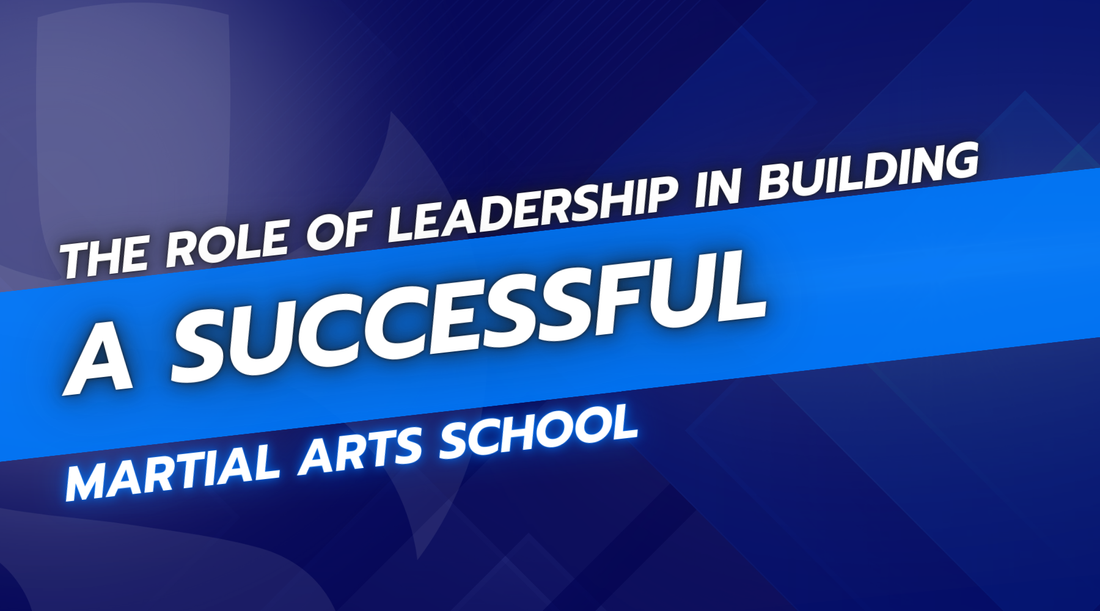
The Role of Leadership in Building a Successful Martial Arts School
Share
Building a successful martial arts school is no small feat. It requires a blend of skill, dedication, and, most importantly, strong leadership. Effective leadership sets the tone for the entire school, influencing everything from the learning environment to the school’s reputation in the community. Let's delve into the essential qualities and actions that define great leadership in the context of martial arts schools.
The Visionary Leader
A successful martial arts school starts with a visionary leader. This person must have a clear vision and mission for the school. What kind of environment do they want to create? What values should be emphasized? The leader's vision should be specific and compelling enough to inspire both staff and students. Aligning the school's goals with this vision ensures everyone is working towards the same objectives, creating a cohesive and motivated community.
Creating a Positive Culture
The culture within a martial arts school plays a critical role in its success. A positive and inclusive environment encourages students to thrive. Leaders can foster this culture by promoting respect, discipline, and camaraderie among students. Strategies include celebrating achievements, encouraging teamwork, and maintaining an open-door policy for concerns and suggestions. When students feel valued and supported, they are more likely to commit to their training and contribute positively to the school community.
Effective Communication
Open and effective communication is a cornerstone of good leadership. Leaders should ensure that there are clear lines of communication between themselves, their staff, and their students. This means not only providing information but also actively listening to feedback. Techniques for effective communication include regular meetings, clear and concise messaging, and using multiple platforms to reach everyone involved. Good communication helps prevent misunderstandings and builds trust within the school.
Leading by Example
Leaders in martial arts must lead by example. Their personal conduct sets the standard for everyone else. This includes demonstrating the values of martial arts such as respect, discipline, and perseverance in everyday actions. By embodying these principles, leaders inspire their students to do the same, creating a strong, value-driven school culture.
Developing Instructors and Staff
A martial arts school is only as good as its instructors. Therefore, developing a robust instructor training program is crucial. Leaders should invest in the professional growth of their staff through continuous education, certifications, and mentorship programs. Providing opportunities for instructors to learn and grow not only improves the quality of teaching but also fosters loyalty and enthusiasm among staff.
Student-Centric Approach
Understanding the needs and expectations of students is key to a successful martial arts school. Leaders should take a student-centric approach, personalizing instruction to meet individual goals and abilities. This involves regular assessments, offering a variety of classes, and creating a supportive environment where students feel motivated to progress.
Building Community Engagement
A martial arts school thrives on community support. Leaders should actively seek to engage with the local community through events, demonstrations, and outreach programs. Building strong community ties not only helps in attracting new students but also enhances the school’s reputation. Organizing charity events, participating in local festivals, and offering free self-defense workshops are excellent ways to engage with the community.
Conflict Resolution
Conflicts are inevitable in any organization. Effective leaders are skilled in conflict resolution, addressing disputes among students and staff promptly and fairly. Techniques for conflict resolution include active listening, mediating discussions, and finding mutually acceptable solutions. A proactive approach to conflict resolution maintains a harmonious environment and prevents issues from escalating.
Adapting to Change
Flexibility and innovation are vital for a martial arts school’s long-term success. Leaders must be willing to adapt to new challenges and opportunities. This could mean updating training methods, incorporating new technology, or responding to changes in student demographics. Being open to change ensures that the school remains relevant and competitive.
Marketing and Outreach
Effective marketing is essential for attracting and retaining students. Leaders should develop comprehensive marketing strategies that leverage both traditional and digital platforms. Utilizing social media, maintaining a user-friendly website, and engaging in content marketing are powerful tools for reaching a broader audience. Consistent and strategic marketing efforts can significantly boost the school’s visibility and enrollment numbers.
Financial Management
Sound financial management is critical to the sustainability of a martial arts school. Leaders need to have a clear understanding of budgeting, financial planning, and revenue management. This includes identifying multiple revenue streams, such as tuition fees, merchandise sales, and special events, and managing expenses to ensure profitability. Regular financial reviews and adjustments are necessary to keep the school financially healthy.
Measuring Success
To ensure ongoing improvement, leaders must measure the school’s success through key performance indicators (KPIs). These could include student retention rates, class attendance, and financial performance. Tools and techniques for tracking progress, such as surveys, feedback forms, and performance metrics, help leaders make informed decisions and identify areas for improvement.
Sustaining Growth
Sustaining growth requires a balance between expansion and maintaining the quality of instruction. Leaders should develop long-term strategies that include scaling class sizes, opening new locations, or diversifying the programs offered. It’s important to ensure that growth does not compromise the school’s core values and the quality of education.
Final Thoughts
Leadership plays a pivotal role in building and sustaining a successful martial arts school. From setting a clear vision and fostering a positive culture to managing finances and engaging with the community, effective leadership encompasses a wide range of skills and responsibilities. By embracing these principles, martial arts school leaders can create an environment where students and staff thrive, ensuring the long-term success and impact of their school.
